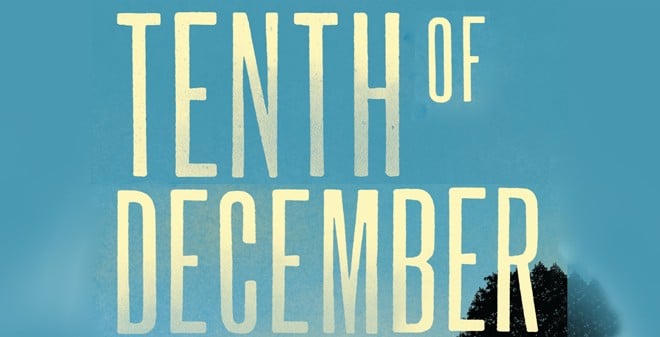

George Saunders’ Tenth of December has been received well by critics and readers.
So, I decided to give it a shot, putting aside my resistance to big books. Tenth of December surprised me in one way and confirmed my bias in another.
As I read one story after the other, I savoured the author’s command over language in a way I had not seen in recent years. Call it style, Saunders has minted what may be his signature syntax. He can complete a sentence without a subject, verb, or without whatever takes his fancy and convey what he wants. His prose can be comic, entertaining, engaging and yet demanding of readers’ acute attention. If the reader slumbers through a paragraph he does it to his own detriment for he is forced to go back to reread to make sense.
His fiction achieves a rare interweave of readerly and writerly. No small feat it is!
The dexterous prose is supported by Saunders’ equal control over the narrative arc. Shifting points of view, post-modern techniques, absurd situations are handled with care and beauty.
At the heart of the stories sits Saunders’ dissatisfaction with the way our modern consumerist society has retarded itself. Almost all the protagonists are good people, trying to do good things but either ending up doing not as good as could be or letting society mess up -- well meaning people end up lying to their children or people intent upon using science to better social ills end up bruising a person’s moral vision.
For George Saunders, both good and bad exist simultaneously and within one heart. Given the opportunity, a saint can turn into a sinner only to confirm his innate humanity. Saunders’ concerns are noble and he sees folks trapped in rural poverty to the middle class as victims of a society gone heartless. Tragedy lingers underneath Saunders’ comic. A random sampling would prove the point:
"’What seems to be the problem, Al?’ Mom had said.
‘Everyone’s calling me bossy and fat,’ he’d said. ‘Plus they say I’m sneaky.’
‘Well, Al,’ she’d said, ‘you are bossy, you are fat. And I am guessing you can be pretty sneaky. But you know what else you are? You have what is called moral courage. When you know something is right, you do it, no matter what the cost.’
Mom sometimes could be full of it. Once, she’d said she could tell by the way he ran upstairs that he’d make a great mountain climber. Once, when he managed a B-minus in math, she’d said he should be an astronomer."
Another example where language literally warns that it might just explode:
"That Don Murray had taken Foul Advantage of Martha, placing, against her will, his rod into her womanhood on Torch Light Night;
Further: that this foul wench had procured Martha’s silence by various bribes, including her current Job or Worke;"
He can be poetic, very poetic, read:
"Or a Nether in the human guise.
Bright, bright, blue and cold.
Crunch went the snow as he crossed the soccer field."
Having paid due homage to Saunders’ craft and concern for the trapped and tragic, it is only fair to hint at a shortcoming, one for which only a major talent could be taken to task. Almost all the stories are situated in modern day, even when they attempt satire. His stories are too glued to white America -- as if the demographic changes of the last several decades have quietly passed him by. But there are hints in a couple of stories that he is aware of things outside the little white world. The overwhelming whiteness of his stories seems to confirm the allegation laid by some non-white writers that American writing is too parochial. Saunders, perhaps, senses that and that in turn compels him to assert his liberal and even progressive credentials which particularly surface in two very well written stories: The Semplica Girl Diaries and Home.
That’s where he runs into problems, especially in The Semplica Girl Diaries, where Saunders seems so obsessed with establishing the main character and his family as liberal in opposition to rich family acquaintances and business folks that he forgets to give any agency to SGs (slave girls?) brought here mostly from the Third World who stand in the lawn as decoration pieces connected by a micro fibre running through their heads. The protagonist’s daughter disconnects the micro fibre.
On the one hand, it is an apt commentary on America’s exploitation of the immigrant labour. One the other hand, a serious American writer has rendered them voiceless, devoid of agency, in the fine tradition of using the ‘Other’ as a backdrop upon which white liberal contortions could be exaggerated.
Imagine (and perhaps that is too difficult a task) if the sad SGs had dared to speak, what a different story this could’ve been?